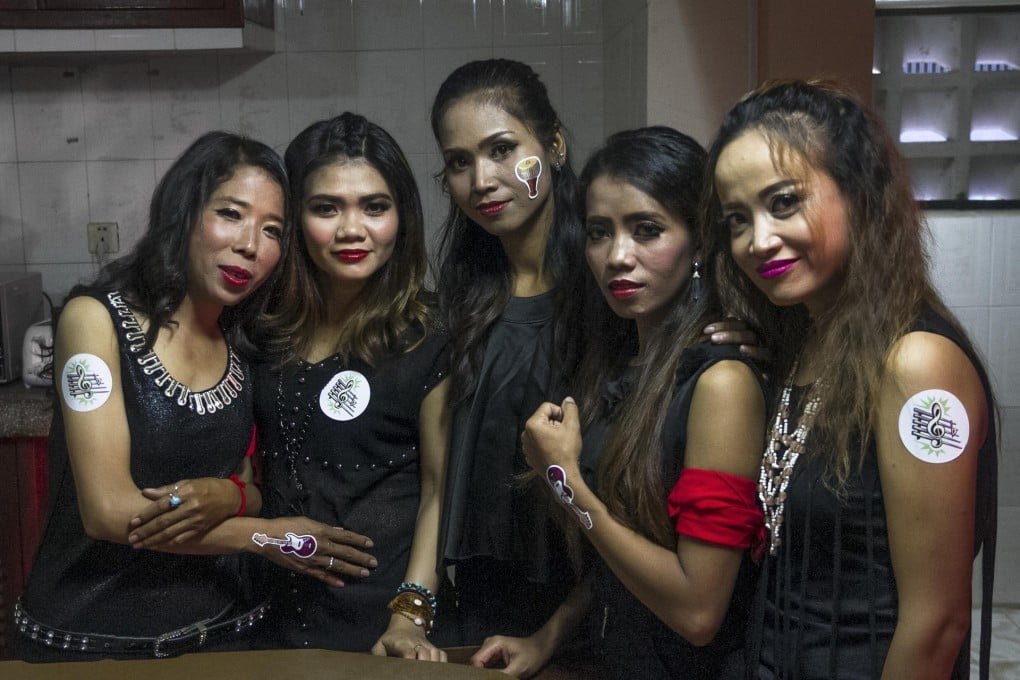Rallying cry: Cambodia's all-female rock band of ex-garment workers
The songs of the Messenger Band are helping drive the fight for women's labour rights in Cambodia

Chrek Sopha and Kao Sochevika arrived on the scene after the worst had happened. Smoke rose from flaming tyres. Stones and shoes littered blood-soaked roads as protesters ran amok. Angry workers tried to take tools and bottles of petrol from nearby stalls. Gunshots filled the air as men in uniform chased the protesters and fired at them with automatic rifles.
It was January 3 last year and, minutes earlier, five garment workers demanding a rise in the minimum wage had been shot dead by police on Veng Sreng Boulevard, an industrial part of the Cambodian capital, Phnom Penh.
That day, the Messenger Band, a six-strong singing group formed in 2005 when an NGO held auditions for girls working in the garment industry, decided to compose a song.
"Most of the people didn't think about the violence, they were not afraid to die, they just stayed together facing the police, they were very strong. Even after the sound of the shots, they still moved ahead and didn't back down," recalls 35-year-old Chrek Sopha, one of the group's members.
Tension had been building since the government established a task force consisting of union members, employers and ministry officials to negotiate an increase in the minimum monthly wage, which stood at US$80 in 2013. The announcement that this figure would rise to US$100 in 2014 had sparked outrage - NGOs had recommended setting the figure at between US$150 and US$160, in light of higher living costs due to inflation (the figure for 2016 has been set at US$140).

The riot came months after Cambodia's controversial July 2013 national election: there had been social and political unrest since the opposition denounced the results as having been achieved through electoral fraud. At the end of December 2013, tens of thousands of protesters gathered in the streets. A few days later, the police opened fire.